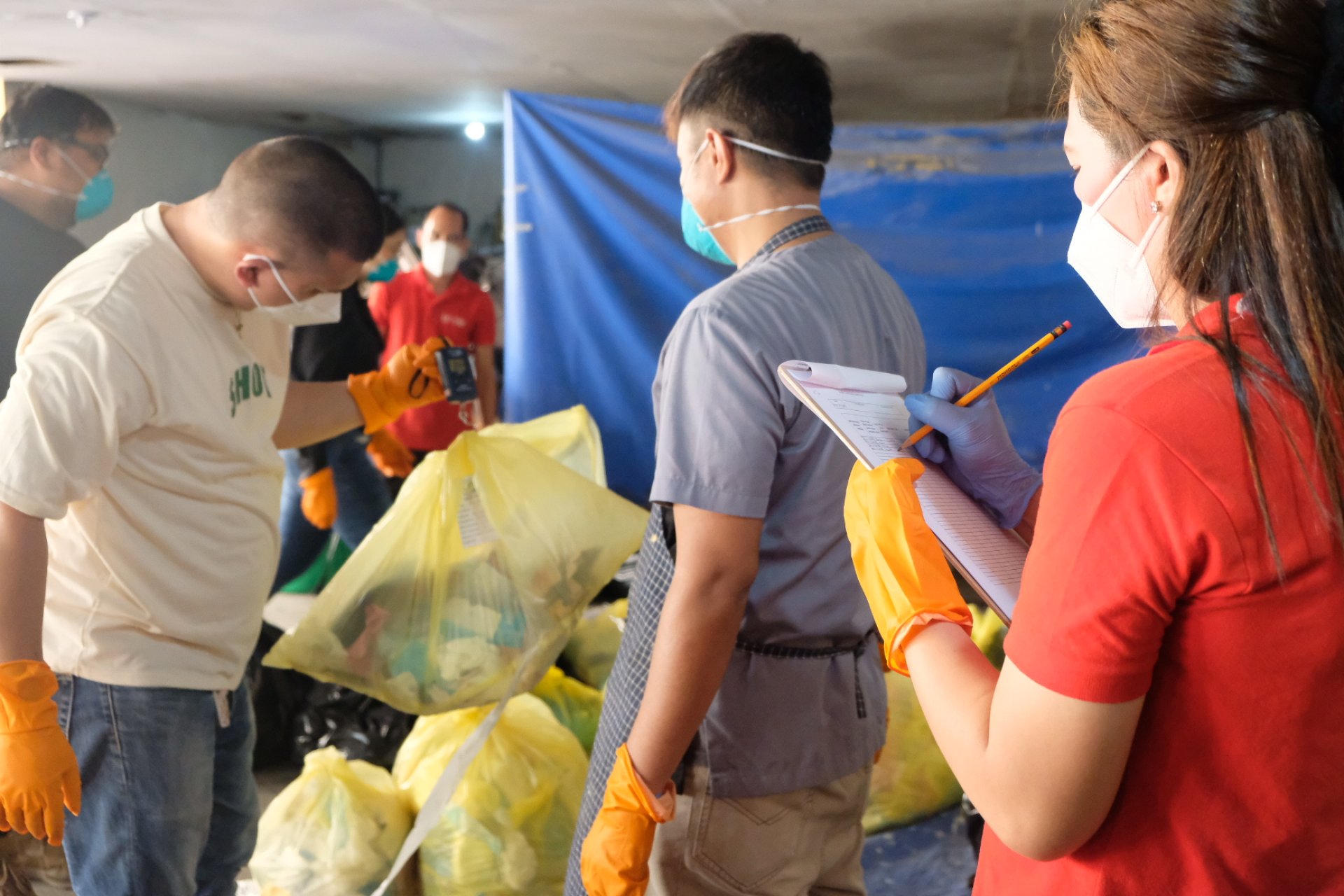
Plastic Pollution Harms Lives
Plastic usage has reached 460 million metric tonnes annually on a global scale, and this number is projected to triple by 2060. The healthcare sector, which accounts for 10% of the global economy, has been found to overuse plastics, with studies indicating that one-third of healthcare waste is comprised of plastics. If this trend continues, simply relying on recycling will not be enough to combat pollution, ultimately causing harm to both people and the planet. By reducing the healthcare sector's reliance on single-use (often toxic) plastics, we can demonstrate that significant change is feasible in all industries, despite the specific barriers that exist to reducing plastic use in healthcare.
What have we done?
Zero Waste Month
In 2012, the Philippines kicked off its Zero Waste Month celebrations with the issuance of the Zero Waste Youth Manifesto by youth leaders. This call led to the establishment of Zero Waste Month, which was officially recognized in January 2014 through Presidential Proclamation No. 760. Since its recognition, various civil society organizations and communities have been actively promoting the zero-waste approach to waste management.
Furthermore, Health Care Without Harm and three Global Green and Health Hospitals collaborated to organize a series of campaign caravans in three healthcare facilities. These campaigns were aimed at increasing public awareness about the significance of reducing plastic usage in the healthcare sector. They also sought to highlight the role of hospital operations in contributing to greenhouse gas emissions while emphasizing hospitals' potential to innovate and advocate for a detoxified planet.
Build Health Champions
The Global Health Guardians (GHG) focuses on advocating for a plastic-free planet and aims to build health champions in detoxifying healthcare. The organization concentrates on policy advocacy and grassroots mobilization within the health sector. Civil society organizations recognize the urgent need for the health sector to proactively address the impacts of plastics on human health and the environment. Therefore, there is a pressing need for the health sector to take decisive action towards detoxifying healthcare and reducing plastics.
It aims to build health champions with unified messaging, which could be key to influencing policymakers' decision-making and securing strong commitments. Through communication workshops and webinars, Health Care Without Harm Southeast Asia, along with key health organizations, aims to build health champions and advocate for a strong, ambitious, and just Global Plastics Treaty.
#PlasticFreeJuly
Plastic Free July is a worldwide movement that aims to inspire and empower individuals, communities, and organizations to make conscious efforts to reduce plastic consumption and waste throughout the month of July. This important campaign addresses the critical need to address the pervasive use of plastics, which has led to significant environmental pollution and posed risks to human health.
Health Care Without Harm Southeast Asia has taken proactive steps by launching its comprehensive Social Media Guide for Plastic Free July. Additionally, we organized and hosted a series of informative webinars focusing on the Plastics Workstream for GGHH (Global Green and Healthy Hospitals) and non-GGHH members. Plastic Free July calls on the healthcare sector and individuals to adopt sustainable practices, detoxify healthcare, and contribute to a healthier, plastic-free future, emphasizing that Plastic Pollution Harms Lives and healthcare should not be exempt from the Global Plastics Treaty Framework.
How to build a Plastics-Free Healthcare?
Endorse our Open Letter From Healthcare Professionals
Open letter from health professionals on the plastics treaty Over 6 million health professionals urge plastics treaty negotiators to protect planet, patients in open letter.
Advocate for policies by joining the RISE Alliance
This RISE Southeast Asia Alliance for Health and Climate (RISE) is an initiative of HCWH SEA's Climate and Health Program, aimed to strengthen and mobilize healthcare leadership on climate action and…
Reduce plastics in your healthcare facility using this toolkit
This toolkit (made possible by GGHH hospitals, partners and academicians), is ultimately developed to help health facilities and the health care sector confront the plastic pollution, change the…
Implement the Gloves criteria
Step-by-step guide to evaluate glove use and implement the sustainable procurement criteria for Exam and Surgical Gloves.